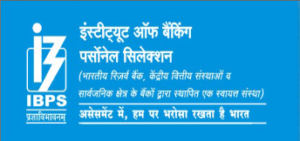Introduction
How to Become an IT Manager in India: Becoming an IT manager in India is an exciting journey that requires a blend of technical expertise, leadership skills, and a deep understanding of industry trends. This role offers not only substantial financial rewards but also the opportunity to make a lasting impact on an organization’s IT strategies and operations.
Table of Contents
Understanding the Role of an IT Manager
An IT manager is responsible for planning, coordinating, and directing an organization’s information technology activities. This includes managing the IT team, overseeing projects, and ensuring the efficient functioning of hardware, software, and networks. Effective communication and collaboration with various departments are essential to align IT initiatives with the organization’s overall goals.
Educational Background and Skill Requirements
A bachelor’s degree in computer science, information technology, or a closely related discipline is typically required for the field of IT management jobs. However, many successful IT managers also possess master’s degrees or MBAs, which can provide a broader business perspective. In addition to formal education, you’ll need strong problem-solving skills, a deep understanding of programming languages, project management expertise, and excellent communication skills.
Gaining Relevant Work Experience
Before aspiring to an IT management role, gaining experience as a software developer, system administrator, or IT consultant can be immensely valuable. This hands-on experience will give you insights into the challenges and intricacies of IT operations, which are crucial when leading a team.
Certifications to Boost Your Profile
Obtaining relevant certifications can significantly enhance your credibility and employability as an IT manager. Certifications such as Project Management Professional (PMP), Certified Information Systems Security Professional (CISSP), and ITIL Foundation can provide a competitive edge and demonstrate your expertise in specialized areas.
Developing Leadership and Management Skills
The transition from a technical role to a managerial one requires developing leadership skills. Effective communication, team building, conflict resolution, and decision-making are essential competencies for an IT manager. Engaging in leadership training and seeking mentorship can aid in honing these skills.
Staying Abreast of Technological Trends
The IT landscape is ever-changing, with new technologies emerging regularly. As an IT manager, staying updated on trends like artificial intelligence, cloud computing, cybersecurity, and data analytics is crucial. Continuous learning will enable you to make informed decisions for your team and organization.
Networking within the Industry
Networking can lead to job possibilities and useful insights. Attend IT conferences, seminars, and workshops to connect with industry professionals, share knowledge, and stay current with best practices.
Job Search and Application
When searching for IT management positions, utilize online job portals, professional networking sites, and company websites. Tailor your resume and cover letter to highlight your technical skills, leadership abilities, and relevant experience.
Acing the Interview Process
Interviews for IT management roles often include technical assessments, situational questions, and discussions about your management approach. Showcase your problem-solving skills, teamwork orientation, and strategic thinking during the interview.
Transitioning from Developer to Manager
Moving from a developer role to a manager position requires a shift in mindset. While technical proficiency is important, focus on developing your interpersonal skills and learning to delegate tasks effectively.
Overcoming Challenges in the Role
IT managers often face challenges such as tight deadlines, budget constraints, and evolving technologies. Effective time management, adaptability, and a solution-oriented approach will help you navigate these challenges successfully.
Balancing Technical and Managerial Responsibilities
Striking the right balance between technical tasks and managerial duties is key. Delegate technical work to your team while focusing on strategic planning, team development, and aligning IT initiatives with business objectives.
Salary Expectations and Benefits
IT management is a well-compensated role. Salaries can vary based on factors such as experience, location, and the organization’s size. In addition to a competitive salary, IT managers often receive benefits such as health insurance, retirement plans, and bonuses.
Conclusion
Becoming an IT manager in India is a fulfilling journey that requires dedication, continuous learning, and a passion for both technology and leadership. By following the steps outlined in this guide, you can position yourself for a successful career in IT management.
FAQs
Q1. Is a master’s degree necessary to become an IT manager?
A master’s degree can provide a competitive advantage but is not always mandatory. Certifications and prior relevant experience are also very important.
Q2. How important are certifications for IT managers?
Certifications can distinguish you from other candidates by proving your skills. They showcase your dedication to your professional development.
Q3. What are the key challenges IT managers face?
IT managers often grapple with rapidly changing technologies, budget constraints, and aligning IT strategies with business goals.
Q4. Can I become an IT manager without prior managerial experience?
Yes, by focusing on leadership development, effective communication, and interpersonal skills, you can transition into an IT management role.
Q5. How do I stay updated on technological trends?
Regularly attend industry events, webinars, and online courses. Engage in continuous learning to stay informed about the latest advancements.




